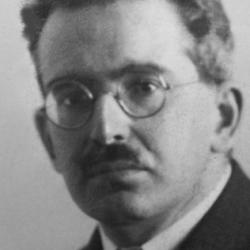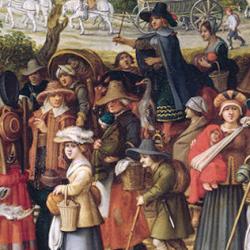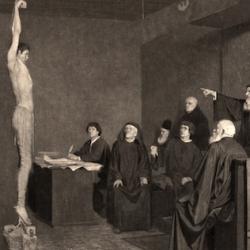The late William J. Stuntz spent his life studying the American criminal justice system. In a 2001 article on our “pathological politics of criminal law,” he lays out the institutional barriers to the fundamental reform that we need.
Most descriptions and prescriptions for criminal justice reform assume that criminal law drives punishment. That’s just the premise that prevents us from making headway, in Stuntz’s view: “It would be closer to the truth to say that criminal punishment drives criminal law. The definition of crimes and defenses plays a different and much smaller role in the allocation of criminal punishment than we usually suppose.” Criminal law mainly works to “empower prosecutors, who are the criminal justice system’s real lawmakers.”
Criminal law can’t drive punishment because it is too broad and all-encompassing. There are thousands of criminal prohibitions in the federal code, thousands more in state codes. Together, the two systems are full of overlapping statutes. “A single crime typically violates a half dozen or more prohibitions.”
Everyone knows this, but knowing it doesn’t stop the trend. Criminal law keeps growing; it has one direction, “toward more liability,” as legislatures add new prohibitions but rarely remove any. Stuntz claims that the trend is toward “codes that cover everything and decide nothing, that serve only to delegate power to district attorneys’ offices and police departments. We have not reached that point yet; substantive criminal law has not wholly ceased to operate. But we are closer than we used to be—the movement is very much in that direction. In a criminal justice system that incarcerates two million people, criminal law is becoming a sideshow. It seems like, and is, an unhealthy state of affairs.”
The culprit is politics, but not in the usual sense. Stuntz notes that the growth of criminal law started long before voters started demanding, and politicians promising, “toughness on crime.” The problem isn’t electoral politics but institutional politics, the distribution of powers among legislators, prosecutors and judges. Each is supposed to check the other, but that doesn’t happen. What happens is “tacit cooperation between prosecutors and legislators, each of whom benefits from more and broader crimes, and growing marginalization of judges, who alone are likely to opt for narrower liability rules rather than broader ones.”
Judges can’t break the alliance of legislators and prosecutors: “Prosecutors are better off when criminal law is broad than when it is narrow. Legislators are better off when prosecutors are better off. The potential for alliance is strong, and obvious. And given legislative supremacy—meaning legislatures control crime definition and prosecutorial discretion meaning prosecutors decide whom to charge, and for what—judges cannot separate these natural allies.”
A lasting solution wouldn’t focus on this or that rule, but would change the way “rules are defined and enforced.” One option is to abolish discretion in enforcement, and “to require that the crimes legislatures create are actually punished.” That is, to make law enforcement actually operate the way most people think it does. Stuntz argues that this is “impossible.” Another solution would attack the problem on the legislative side, curtailing or ending legislatures’ role in deciding how wide to spread the net of criminal law. Depoliticizing criminal law “is as likely to aggravate the system’s current pathologies as it is to mitigate them.” The other option is to empower the courts. This too is a non-starter since any already believe the courts are more powerful than they should be.
With such political and institutional obstacles in the way, “it seems unlikely that criminal law’s structural problem will be solved, or even addressed, anytime soon.”
(Stuntz, “The Pathological Politics of Criminal Law,” Michigan Law Review 100:3 [2001]: 505–600.)















